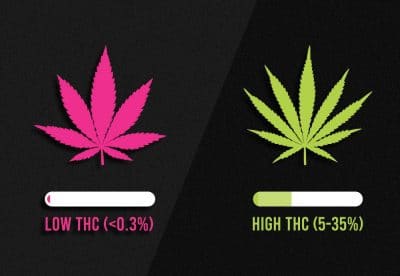Table of contents
How will the onset of hostilities influence cannabis reform and the sector across the area, with war just a day’s drive from German borders and far closer than other EU countries like Poland and Turkey?
On February 24, 2022, as Russian tanks poured into Ukraine, the last thing on anyone’s mind was how the largest ground war in Europe since WWII would affect the fledgling cannabis market.
However, the reality has set in, and many in the cannabis sector, at least in Europe, believe that the upcoming reform concerns, which are critical to the industry post-COVID, as well as other challenges inherent in a globally interconnected society, may come to a halt.
What will be affected, and what will remain unchanged?

Europe’s Production and Supply Chain Issues
The cannabis supply chain is one of the issues that will be untouched. Germany currently imports some of the cannabis it uses for the medical market from other European countries. Furthermore, cannabis is being imported into the country from areas that have so far been unscathed by the commencement of hostilities. Denmark, Portugal, Spain, Holland, Greece, Columbia, Uruguay, Australia, Lesotho, and Uganda are among the countries represented, as is the beginning trickle of manufactured goods from Israel.
“We do not expect the war to harm our supply chain,” Franziska Katterbach, President for Europe at Khiron Life Sciences, situated in both Frankfurt and the United Kingdom, stated over the phone.
Higher energy costs, on the other hand, are expected to have an impact on the industry. The two European countries most affected by rising gas costs as a result of the conflict are Germany and Holland. The United Kingdom is also in trouble. All medicinal cannabis prescribed and eaten in the United States must be grown indoors in order to receive EU-GMP certification. As a result, it consumes a lot of energy and water.
Alain Menghé Alan Menghé, the CEO of Lio Pharmaceuticals, a German distributor situated in Solingen, just outside of Dusseldorf, is a little more pessimistic. He expects the commencement of hostilities to have an indirect impact on the entire sector. “Unfortunately, the scenario is already creating higher energy prices,” he said, “which will have an impact on everybody in the sector who has to transport, store, or manufacture the plant or pharmaceuticals made from it.”
One of the most pressing difficulties in the medical industry right now is insurers’ readiness to accept cannabis-related medicine.
The Effect on the Cannabis Industry in Ukraine
Cannabis has a lengthy history in this city. The country was one of the greatest cultivators of industrial hemp during the Soviet era. Cannabis with a higher THC content was also grown on a regular basis, even if secretly, resulting in a big user population.
The legalization movement has recently gained traction in our country. A Cannabis March of Freedom was held in October 2017, setting off the modern campaign in the United States to legalize marijuana for medical and recreational use.
The Russian invasion, according to local activists, will ultimately destroy the local cannabis business. There had been some triumphs thanks to years of lobbying, especially by the Ukrainian Association of Medical Cannabis. Prior to last Thursday, it was possible to receive a medical cannabis prescription, but obtaining it as well as authorised supply was extremely difficult.
However, this does not rule out the possibility of reform, even if local experts predicted no change for the next five years. There have also been numerous attempts to bring cannabis reform into the political debate, but they have all failed.
The Ukrainian Association of Cannabis made a motion to the Parliament in 2019 to discuss medical marijuana legislation. According to a national poll conducted in 2020, 65 percent of the population supports medical reform. Drugs containing nabilone, nabiximol, and dronabinol were on the market in 2021. Cannabis was officially prohibited in the country until last Thursday, though individuals were allowed to grow up to 10 bushes for personal use.
Given the current state of affairs in the country, it is highly likely that the illicit market would flourish, beginning with the disruption of daily life caused by the war, the inevitable black market, and the scarcity of medicines.
Political and Personal Issues
Beyond Ukraine, one of the most significant consequences of the war is likely to be the political ramifications. This is especially true in Germany, where lawmakers have already stated that COVID will push back the entire recreational discussion. Another source of distraction is war. This is also true in Germany, as it is in every EU country and the United Kingdom at the moment.
“The deprioritization of other issues (than the conflict) could hinder the dynamic of regulatory reform,” Menghé à Menghé says.
Beyond that, there are additional factors that people on the cannatech side of the equation are concerned about, such as the war’s immediate influence. Part of the programming staff of Ziya Gaziyev, the CEO of Berlin-based HelloMary, an AI-centered marketplace and platform, is headquartered in Ukraine. He stated, “We are quite concerned for our friends and colleagues.” “Obviously, this has a direct impact on us on a personal level. However, because our main workforce is dispersed across numerous countries, it will have no impact on our programming efforts or timelines.”
Why Legalization Shouldn’t Be Delayed
It is vital for the cannabis sector to take control of its own destiny right now. Even though some are still hesitant to accept full reform, the sector has been acknowledged globally as excellent for economies, a strong employer, and, of course, produces highly effective pharmaceuticals.
Given its “flower power” origins, no matter how corporate it has become, this is generally a pro-peace and diplomacy enterprise for example Cannabis Man
Delaying change due to ostensibly more essential and pressing issues would just make it more difficult for patients to receive the medication. And escalating the war will simply add to the pain that cannabis will not be able to alleviate.



